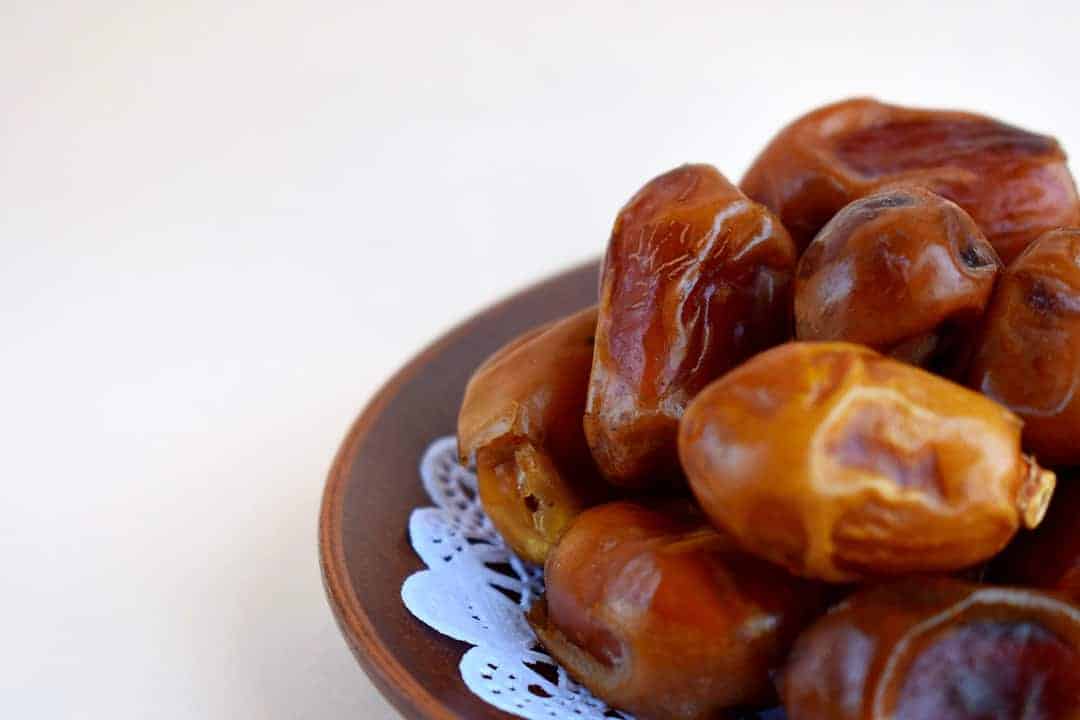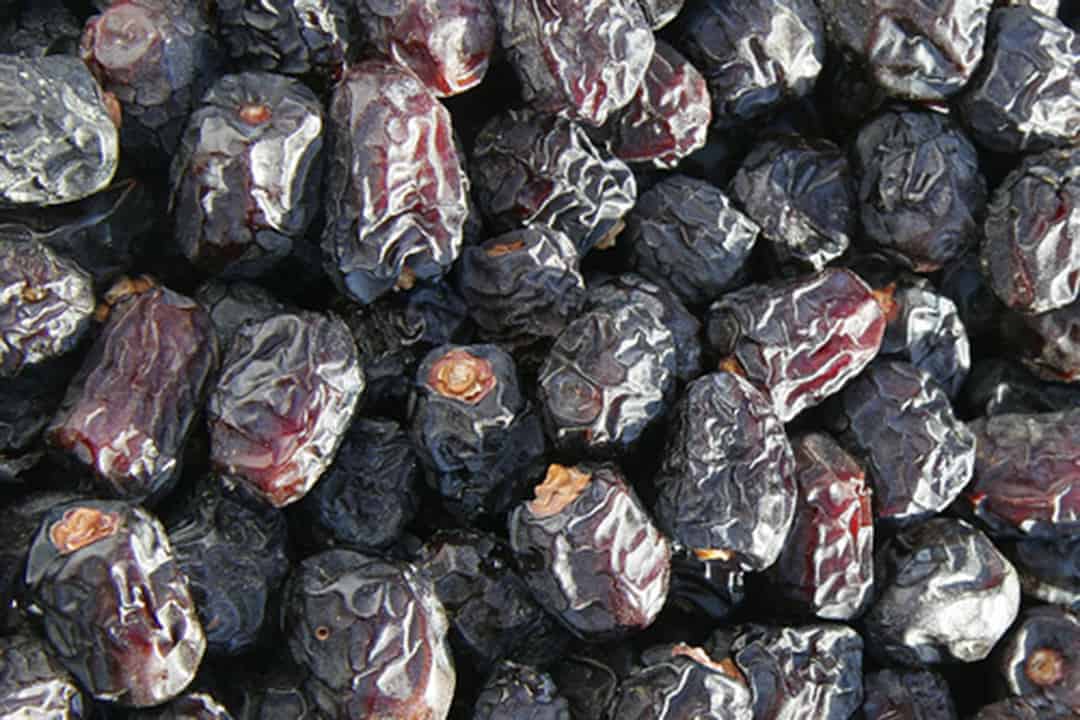It’s that fruit Muslims like to joke about, especially in Ramadan – this week’s #Tibboftheweek:
Tamar – Dates

A product of the date palm (‘nakhl’ in Arabic) and cultivated since approximately 6000 B.C, the date fruit (‘tamar’ in Arabic) is one of the sweetest fruits around, and also happens to come in many different varieties.
There’s so much to discuss about dates from the Qur’an and ahadeeth that it’s hard to cram it all into one article! Interestingly, the date palm is mentioned more than any other fruit-bearing plant in the Qur’an – over 20 times.
Although dates can be eaten fresh, the fruit is very often dried, resembling raisins or plums. But whether fresh or dry, the association of dates is significant from both a religious and a health point of view. A common feature in the Muslim diet, especially throughout the month of Ramadan as recommended by the Prophet ﷺ to break the fast, they can be easily digested, therefore not taxing on a fasting stomach, helping to satiate hunger quickly and due to being rich in natural sugars, provides an instant energy boost.
Dates have been prized for their health-enhancing benefits for centuries, ranging from being used in fertility issues, pregnancy and childbirth (even Maryam/Mary – the mother of ‘Isa/Jesus peace be upon him was advised to eat dates (Qur’an 19:25) when she felt labour pains, during her confinement), digestive disorders (e.g. alleviating constipation), blood pressure regulation and respiratory problems, to name just a few!
Modern science has proved that dates are part of a healthy diet because it contains essential vitamins and minerals:
- Dates are fat, cholesterol and sodium-free.
- Despite its high level of sweetness (yes, dates are Mother Nature’s version of candy), one date only has 23 calories!
- Dates contain vitamin A and numerous B-complex vitamins (thiamine, riboflavin, niacin, vitamin B-6 and pantothenic acid), necessary for building healthy body tissue and muscle.
- Dates contain 15 minerals, including magnesium, iron, phosphorus, copper, calcium, manganese and potassium. These are essential for the proper functioning of muscles and the nervous system.
- A humble date contains more potassium per weight than a banana.
- Dates are loaded with dietary fibre, both soluble and insoluble. A diet rich in dietary fibre has been proven to reduce the risk of certain cancers and control blood sugar levels.
- Dates are also full of tannins. Tannins are responsible for the dark colour of dates in the post-harvest period, and this gives them the highest concentration per serving size among dried fruits of antioxidants, linked with fighting heart disease and cancer.
There’s the saying, “an apple a day keeps the doctor away” well, we could have, “seven dates a day keeps the doctor away”:
The Messenger of Allah ﷺ said: “Whoever eats seven ‘ajwah dates in the morning, will not be harmed by any poison or witchcraft that day.”
~ Bukhari

‘Ajwa is a special variety of date that the Prophet ﷺ preferred and is found exclusively in the holy city of Madinah (Saudi Arabia).
In general, this hadith is advocating the consumption of this blessed fruit on a daily basis for overall well-being. This can be due to dates having a sufficient amount of nutrition to eliminate accumulated toxins in the body and replenishing the body with the required amount of daily vitamins and minerals. Although Ramadan is nearly finishing, we can incorporate Tibb An-Nawawi (prophetic medicine) into our daily lives as a new habit to form and change bad habits for a healthy body, and a healthy, happy mind bi’ithnillah (with the permission of Allah).
What’s your favourite type of date? Let us know with #Tibboftheweek





Brilliant article, thank you always useful – my favourite is Ajwa but as its quite expensive we often opt for the alternative of Safawi which I love too – Masha’Allah